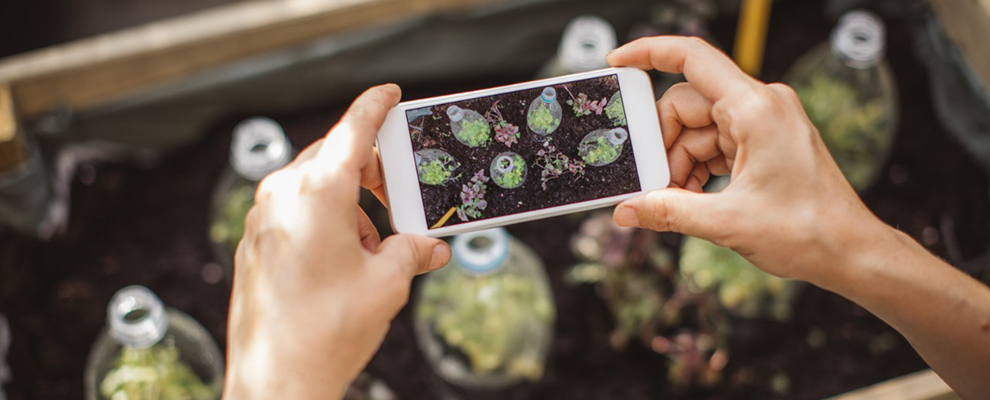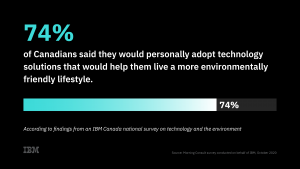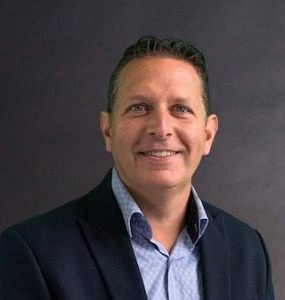Technology and the Planet – supporting sustainability from the palm of your hand

Last week the Canadian government tabled legislation as part of its climate action plan to meet and exceed Canada’s emissions reduction targets. This followed comments made two days earlier by the Bank of Canada’s Governor in which he cautioned that climate change will have a profound impact on our economy.
A survey conducted by IBM last month shows that the majority Canadians agree – 73% believe the advancement of clean technologies and artificial intelligence are important in ensuring economic growth. The survey also reveals that most people are keen to integrate more technology into their personal lives if it would support planetary health – 74% of Canadians said they are willing to adopt technology solutions to help live a more environmentally friendly lifestyle.
So, while countries around the world – including ours – work towards the 2050 net zero emission goal and implement other innovative ‘good tech’ measures to combat climate change, how can we do our part with the technology we use every single day?
Supporting sustainability from the palm of your hand

By the end of this year, 45% of the world’s population is projected to have a smartphone. In Canada, that number is 84% – 31.4 million Canadians own a device that is said to be 7 million times more powerful than the computer that took Apollo 11 to the moon. With this level of technological power at our fingertips, grassroots innovation to support sustainability is available to most of us anytime, anywhere.
Here are just a few examples of Canadian innovation that uses mobile technology to help create a more sustainable environment:
OffShip:
- 59% of Canadians surveyed say they are holiday shopping online this year – a 36% increase
- 49% of Canadians are worried about the environmental impact of long distance shipping
OffShip is an extension you can add to your web browser that will monitor the items in your online shopping cart and estimate their carbon footprint based on weight and distance traveled. Users can then use carbon offset credits for a charity of their choice to counteract the carbon footprint. The solution, which uses IBM Cloud and other technologies, was created by a team of developers from Morgan Stanley in Canada was selected as a global finalist in IBM’s Call for Code contest.
Liquid Prep:
Liquid Prep was developed by five technologists from the IBM Canada Lab in Ottawa for use by low-literate farmers in developing countries who don’t have access to the same agricultural knowledge and advice as larger, more advanced farms. The Android phone app uses AI-powered weather and agriculture data to help optimize water usage, while Bluetooth-enabled sensors read soil moisture levels to provide feedback in real time. The Liquid Prep team was the winner of IBM’s internal 2019 Call for Code challenge
Ukko Agro:
Ukko Agro is a Canadian start-up that helps farmers grow food more sustainably. It uses data and predictive analytics gathered through The Weather Company and other IBM Watson AI tools to apply agricultural inputs – pesticides, water, fertilizer – in sustainable ways, lowering the costs and environmental impact of farming. Algorithms and other field technology continuously monitor and analyse crops, and aggregates disconnected data to provide growers with precise actions that help drive operational decisions.
Advances in innovation and ‘good tech’ activated through mobile technology have made it possible for all of us to find ways to reduce our impact to the environment and to take proactive measures in living more sustainable lives.

Steven Astorino, VP of Development, Data and AI, IBM Cloud
LinkedIn: https://ca.linkedin.com/in/steven-astorino-5110a41


